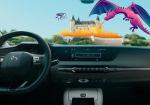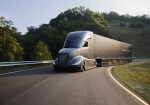BYD BD11: The Future Of London's Double-Decker Buses?

by AutoExpert | 22 May, 2024
There are rumors that the new BYD BD11 double-decker bus, with a maximum range of nearly 400 miles, will replace London's Routemaster. The Chinese manufacturer recently unveiled its latest electric bus at the London Bus Museum, 11 years after launching its first bus in the UK and shortly after delivering its 1800th bus here.
In the past 18 months, its fleet has covered almost 18 million miles. At 532 kWh, the BD11's battery capacity is the most of any electric commercial vehicle on the UK market right now.
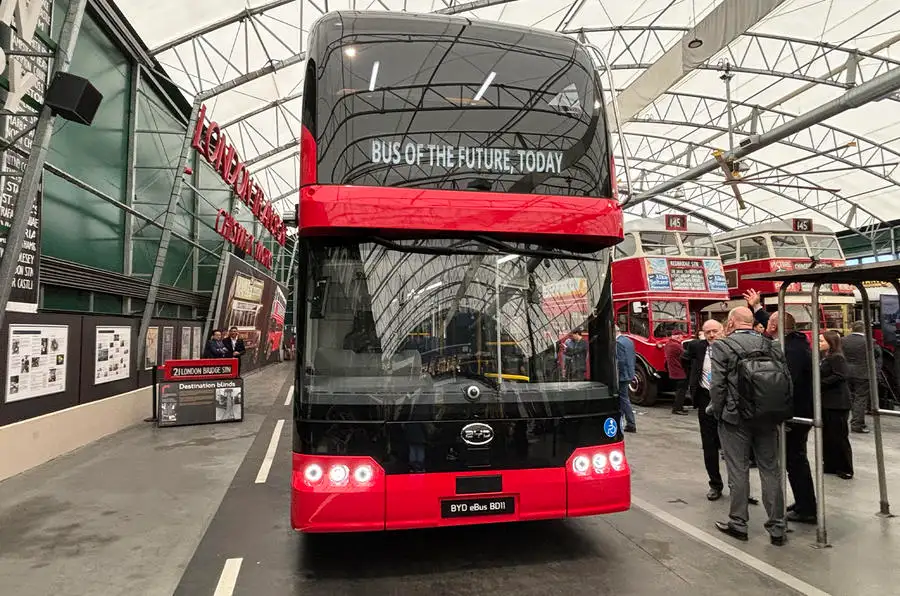
While BYD has not publicly disclosed the range, it has stated that the bus will run over 0.9 miles per kWh, implying a useful range of over 400 miles. However, the BD11 will share the same modular battery technology as its previous electric buses, allowing drivers to customize it to the vehicle's specific needs. The average daily mileage of a London bus is 100–200 kilometers.
The BD11's attractiveness, according to BYD, stems in large part from the fact that it uses its signature Blade battery technology, which has a track record of reliability and longevity (and is also used in its electric automobiles). This technology has the potential to keep running for twelve to twenty years.
Since the business manufactures its own batteries, restoring the BD11 driveline will be more cost-effective and practical than sourcing a pack from an outside vendor. Battery technology is an integral part of BYD's latest e-architecture 3.0 commercial vehicle architecture, which the company claims would improve both the vehicle's stiffness and the ride quality.
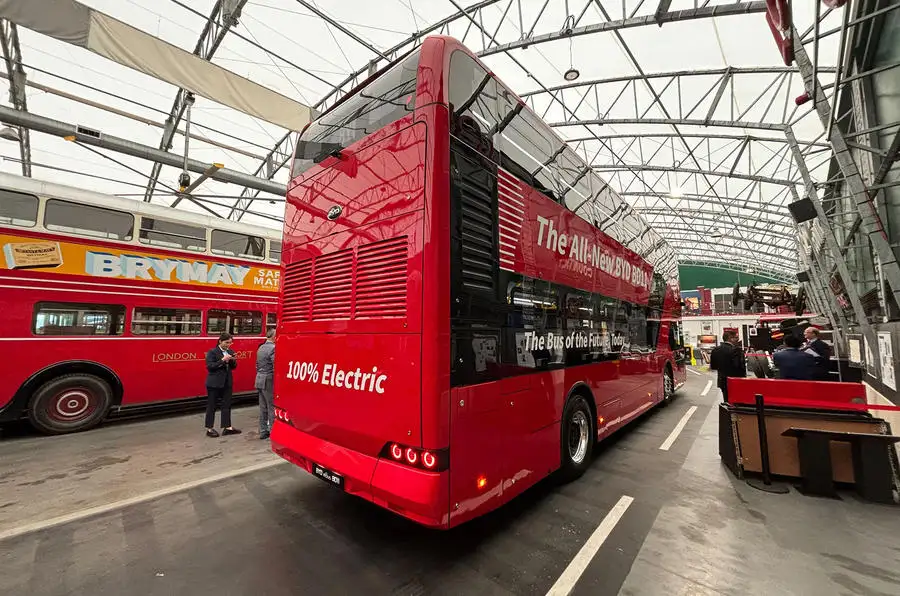
Notable features of the platform also include dynamic suspension as standard equipment and in-wheel motors that maximize interior capacity and enable a turning radius of eight meters. Depots and public stations include standard ports for traditional quick charging, which may reach up to 500 kW via an overhead connection. You can connect multiple chargers simultaneously to enhance the speed of charging.
Frank Thorpe, BYD UK's commercial vehicle managing director, expressed his hopes that BYD can succeed where Wrightbus' New Routemaster failed and become the de facto standard for London buses, but the company has been tight-lipped about specific commercial goals and volume estimates due to the delicate nature of public transport tendering procedures.
The Boris Bus, a hybrid double-decker in production for 13 years, will phase out in the coming years as part of the city's goal to have an all-electric bus fleet by 2030. "We genuinely believe it's a game-changing product in terms of its efficiency, safety and commercial appeal. We believe it's going to be significant," Thorpe added.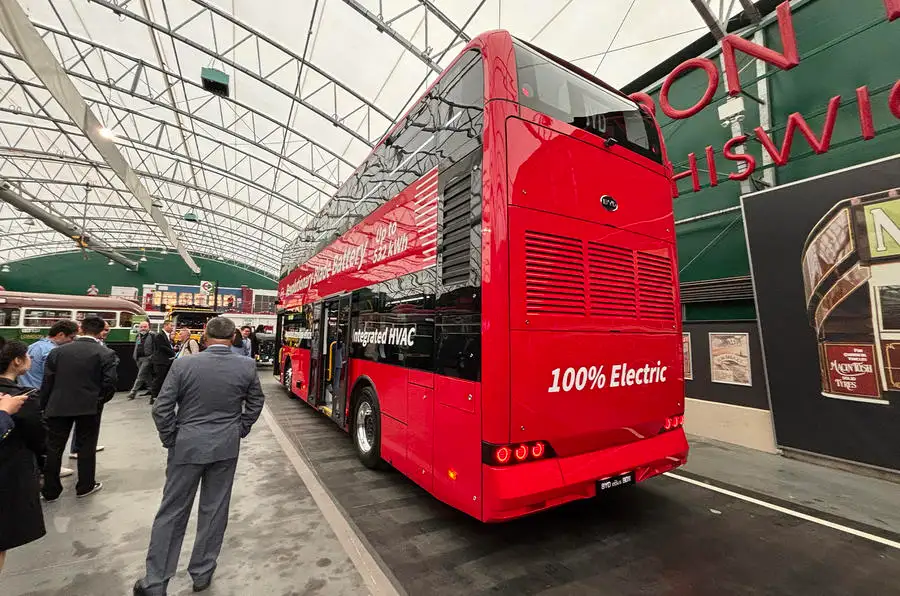
He refrained from making any sales projections but said that they would substantiate their claims after receiving positive feedback from stakeholders and operators, such as the Department of Transport and Transport for London. "That's the key: we can say all sorts, but we've got to prove that is the best bus for the UK public, taxpayers, and stakeholders."
In the third quarter of 2024, the BD11 will make its debut as a double-decker. A few months after that, a single-decker will make its arrival. Finally, at the end of 2025, a double-decker known as a "provincial" would touch down with a lower roof.
According to the Society of Motor Manufacturers and Traders (SMMT), "the UK's bus market could be the first vehicle sector to decarbonise." This prediction coincides with the BD11's unveiling. "Buses are leading Britain’s race to transport decarbonization as Europe’s biggest market for the very greenest road passenger vehicles," the SMMT stated, adding that over 40% of the UK’s single- and double-deckers are now zero-emission.
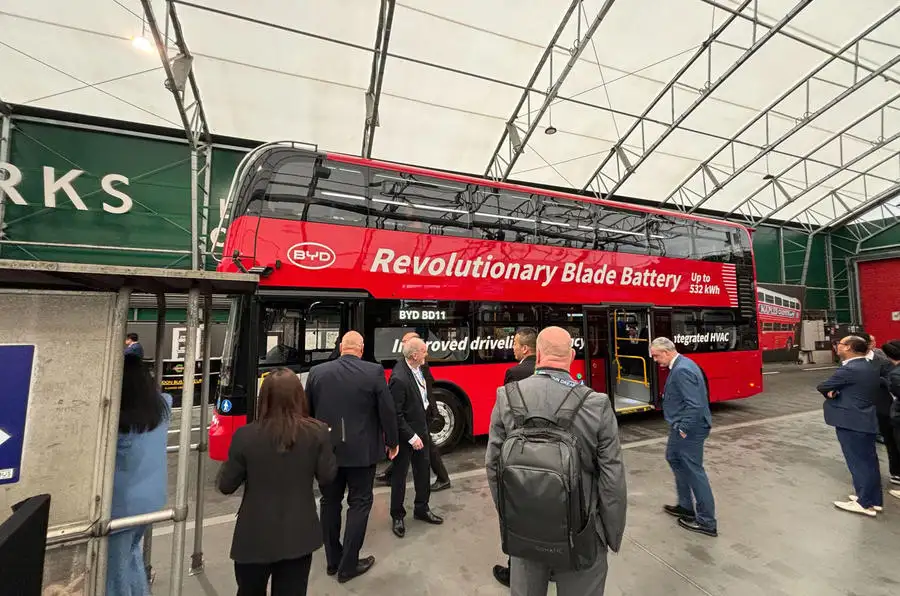
According to the report, London receives more than half of all electric buses, despite accounting for less than a sixth of the UK's bus market. It states that there is an uneven distribution of benefits, ranging from improved local air quality and reduced noise pollution to a more enjoyable passenger experience. In light of the industry's narrow profit margins and the precipitous drop in passenger numbers caused by the 2020 COVID epidemic, the SMMT has demanded additional assistance for electric fleets of all kinds.
The SMMT also pointed out that electric buses are far more costly to purchase than their combustion-powered counterparts. Rumors suggest that London's Go-Ahead transport business will award BYD a contract to manufacture over a hundred buses of the BD11 at a cost of approximately £400,000 each. This would be approximately £100,000 less expensive than buses manufactured by rivals in the UK.
Previously, BYD collaborated with British manufacturer Alexander Dennis to supply buses to Go-Ahead; however, now that BYD is operating independently, China will supply the buses. But according to what Thorpe told Autocar, the European Union is the source for about 34% of the BD11's parts.





